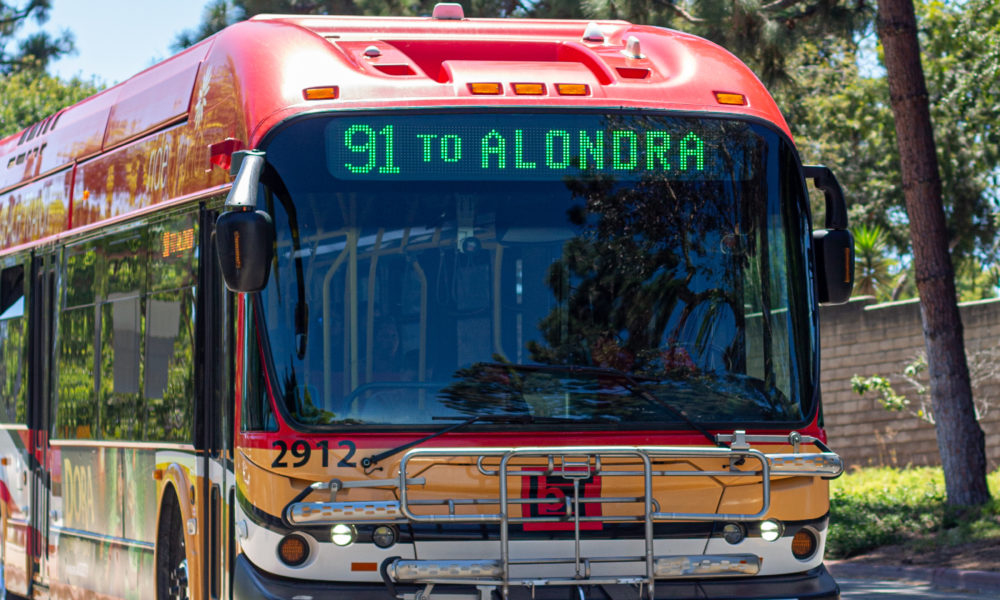This story has been updated
Long Beach State’s TAP card program was raised from a one-time $5 fee to $40 per semester, an 800% increase per semester.
The program, which started in 2010, provides unlimited rides on all Long Beach Transit buses to enrolled CSULB students and faculty and staff members.
Loyal LBT rider and environmental science and policy student Megan Honey started a petition in response to the sudden change.
“I think [the program] has really supported a lot of students,” Honey said. “We do have a lot of people that commute in Long Beach and we have a lot of low-income students so I think it’s completely inappropriate to raise the fees like this.”
The fee increase over the summer was a result of Parking and Transportation Service’s lack of revenue to support sustainable transportation programs like the campus shuttles and the TAP program.
“Given the way that our current fee structure works, we’re not bringing in any revenue for the sustainable transportation programs,” said Robyn Ames-Woodyard, director of parking operations.
When the university first introduced the U-PASS TAP program, it had subsidized the entire program, which had cost $250,000 annually at the time.
Through the years, the cost had risen to over $1 million per year and PTS could no longer pay for the program.
Ames-Woodyard attributed the increase to the significant rise in the program’s overall use. In 2017-18, over 1.5 million TAP rides were taken by roughly 14,000 unique riders.
The majority of the department’s revenue is derived from parking permit fees. This makes up 80% of the department’s $12 million revenue pool. The rest comes from citations, events, space rental at the Barrett Athletic Administration Center, earned interest and sustainable transportation.
According to Ames-Woodyard, student fees don’t support transportation programs with the exception of roughly $280,000 given annually by the campus to support sustainable transportation initiatives. This comes from a combination of student success fees and state funding.

A 2017-2018 annual report conducted by PTS revealed the department’s top two expenses were lot renovations and loans used to build parking structures.
Sustainable transportation comes in as the third highest expense. The school’s sustainable transportation programs, which include the shuttle service and TAP program, have an operating cost of $2.5 million on average annually.

The TAP sticker fee increase is one of several fall 2019 changes listed on the PTS website. Other changes include a $45 per semester fee for riding the off-campus Los Coyotes Shuttle, a service that had been free since it was first introduced to students.
“What we decided to do was put in place a fee structure for every program, so that we weren’t really just putting all the fees toward one specific group,” Ames-Woodyard said. “We tried equitable distribution across all the programs, which would overall lessen the fees which we’re trying to be as sensitive as we can to all the needs of the students.”
Despite the university’s efforts to keep fees low for all programs, some students are still frustrated by the TAP program fee increase.
“I find it incredibly frustrating that the university advertises sustainability and says they’re very interested in sustainable initiatives; but when the time comes to make decisions, they’re making sustainable transportation less affordable,” Honey said. “Doesn’t seem to fit with the university’s goals.”
The university has developed a fee-waiver program to ensure that students who face financial hardships will still have access to LBT buses. Individuals who have filed a FAFSA or DREAM financial aid application and have an expected family contribution of $6,000 or less may be eligible for the fee-waiver.




